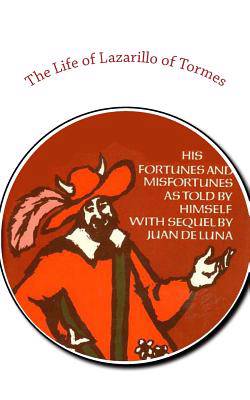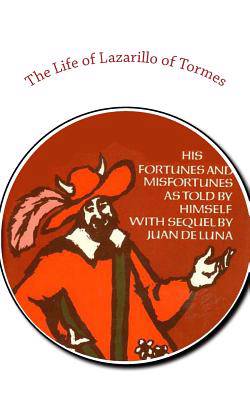
- Retrait gratuit dans votre magasin Club
- 7.000.000 titres dans notre catalogue
- Payer en toute sécurité
- Toujours un magasin près de chez vous
- Retrait gratuit dans votre magasin Club
- 7.000.0000 titres dans notre catalogue
- Payer en toute sécurité
- Toujours un magasin près de chez vous
Description
Sometime around 1550 a little book, published anonymously, appeared in Spain. It purported to relate the life of one Lazarillo of Tormes, whose only goal since childhood had been to fill his empty belly. For its wit, unerring characterizations, realistic observation, and its sage acceptance of life, the tale went straight to the hearts of all Spain. Immediately translated into other languages, it was soon being read with delight throughout Europe. A masterpiece had been born, and for centuries it has endeared itself to new generations of readers and has won the praise of critics of every school and taste. In this modern but faithful version by Robert S. Rudder the reader will be able to read the entire book as it was experienced by the readers of the sixteenth century. Several imitators attempted to fill their purses by riding on the shirttails of that beloved book, using Lazarillo's name as part of their title. Of them all, the only one that can lay claim to literary merit of its own is the "Second Part of the Life of Lazarillo of Tormes" (1620) written by Juan de Luna. This author was a political and religious refugee in France, who spent his last years as a Protestant minister in London. Juan de Luna may have had to flee from the Inquisition because of his bitterness toward the clergy. About this attitude he leaves us in no doubt; in his novel the satire on the church is blunt and devastating. But this venom did not hinder Juan de Luna from telling a witty, entertaining, spicy story. The unknown author of the First Part, who starts his tale by having the narrator state frankly that writers want glory - "they want to be rewarded...with people seeing and reading their works, and if there is something worthwhile in them, they would like some praise" - not only gained his wish but initiated a literary genre that is still very much alive, the picaresque novel. To this tradition belong Tom Jones, Huckleberry Finn, Moll Flanders, and in our own day, The Tin Drum. This edition is superbly illustrated with seventy-three drawings by the Dutch painter Leonard Bramer (1596-1674). The drawings, reproduced here by permission, are in the keeping of the Graphische Sammlung in Munich.
Spécifications
Parties prenantes
- Auteur(s) :
- Editeur:
Contenu
- Nombre de pages :
- 296
- Langue:
- Anglais
Caractéristiques
- EAN:
- 9780615961392
- Date de parution :
- 10-02-14
- Format:
- Livre broché
- Format numérique:
- Trade paperback (VS)
- Dimensions :
- 127 mm x 203 mm
- Poids :
- 322 g

Les avis
Nous publions uniquement les avis qui respectent les conditions requises. Consultez nos conditions pour les avis.






